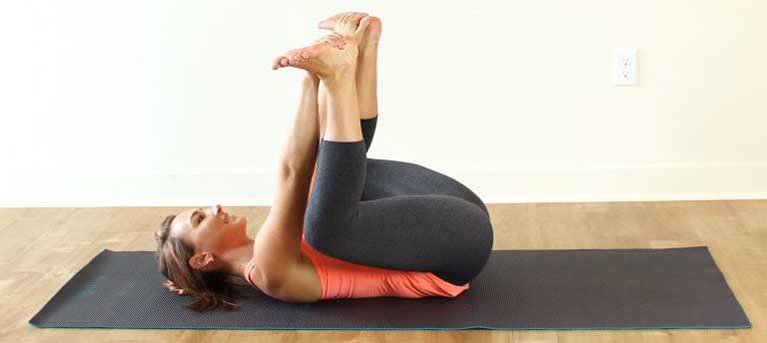Mobility and flexibility are important for the entire body. But, in this post, we explain the significance of maintaining flexibility in a specific part of the body- the hips. Many people nowadays spend a lot of time sitting at their desks, and sitting for a long period on a daily basis can result in tight hips and impaired mobility.
Tight Hips Can Cause:
Muscle Imbalances. If you are sitting for hours every day, your hip flexors – the inner hip muscles – will shorten and tighten. The back of your hips, your hip extensors, and your glutes are overstretched while you are sitting, and this kind of stretch and tightness is not beneficial. In fact, your muscles are weakened as they are not sufficiently used.
Poor Posture and Balance. The major stabilizer of the pelvis is the hip flexor, so when these muscles are weak, it might lead to impaired balance, and thus, poor posture.
Back Pain. The position of your pelvis will be distorted into a forward, unnatural tilt if your hip extensors and glutes are overstretched. These tight muscles and the tilt will also begin to pull at the lower back muscles, which is something that people with very tight hips complain about a lot. If you stretch your hips every day, you will not only improve your mobility but also improve your strength and workout performance. One of the most popular and effective ways to improve the flexibility in your hips is yoga, thanks to its many hip-opening poses.
Here Are 8 of the Best Yoga Hip-Opening Poses
1. Happy Baby Pose
Pull your knees towards your upper body while laying on your back.
Place your hands on the inner arches of your feet and start opening the knees slightly wider than your torso.
Your lower back should press the mat as much as possible, while you are pressing your feet into your hands and pulling the hands down to make resistance.
Take deep breaths while in this position.
Stay here for at least half a minute.
2. Thread the Needle Pose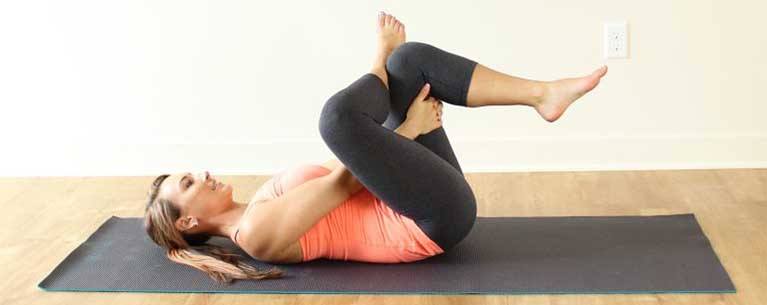
While laying on your back, place your feet flat on the mat, and bend your knees. Similar to figure “4”, cross your left ankle over your right knee. Keep your hips grounded while pressing the mat with your lower back. Pull the right knee in towards your torso, threading your left hand between your legs. Pull the left knee deeper into the stretch with your clasped hands underneath it. Try to keep the left knee open to truly stretch the hip. Take deep breaths and remain in this position for at least half a minute. Repeat this with the opposite side.
3. Frog Pose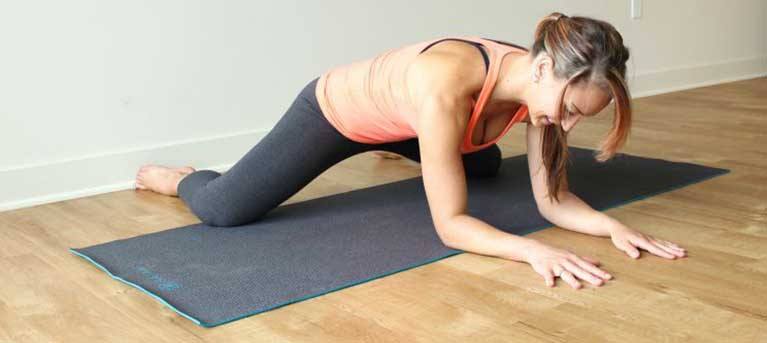
Don’t do this exercise if you have a knee or ankle injury, as it is pretty intense. Get on all fours with your hands placed right under your shoulders and your knees on the mat. Carefully widen your knees until you feel stretched in the inner thighs. Don’t overstretch. Your ankles should remain in line with your knees, while your calves and feet are grounded the whole time. Once again, without overstretching, lower down to your forearms if you are able to. Stay here for at least half a minute.
4. Butterfly Pose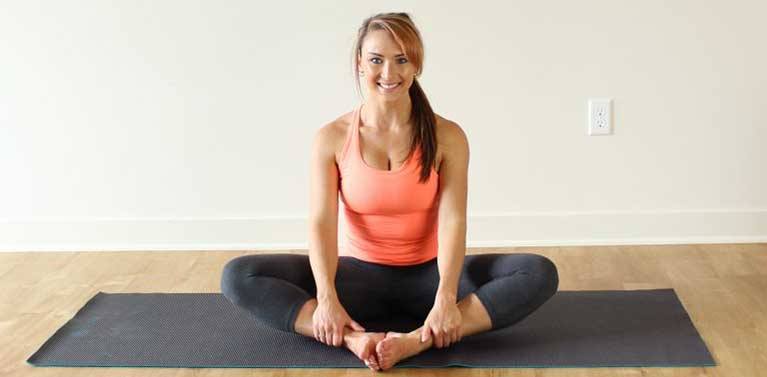
Sit with your back straight, and bent knees. Place your hands by your sides. Let the soles of your feet touch and let your knees open outwards. Open the knees with the help of your leg muscles and bring them closer to the mat. The stretch should be felt in your inner thighs. You can deepen it by pulling your feel as close to the pelvis as possible, or by folding forward and placing your hands in front of you. Stay in this position for half a minute.
5. Half Pigeon Pose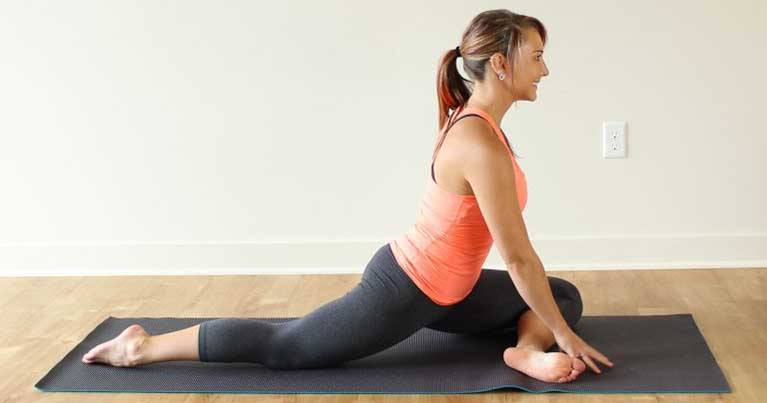
Begin this position in a runner’s lunge. Your right foot should be in front of you and both hands placed on either side of that foot. Let the right knee fall down to the outer side, and drop your back knee supporting on your fingertips. Press into the toes, and then rock the knee back a little bit. The outer part of your calf should be grounded parallel to the front of the mat. But, if you are new to this pose, tuck the front heel in towards the groin a little bit. Keep the front toes flexing to prevent harming your knee.
The hips should be back towards the square, and then you can walk your fingertips forward any amount. You can lower down to your forearms, or even layer over the front leg if you want a deeper stretch. The stretch shouldn’t be felt in the glute and on the outside of the right hip. Stay here for half a minute, and then do the same thing on the opposite side. (If you feel uncomfortable or even painful in this pose, stick with Thread the Needle.)
6. Double Pigeon Pose
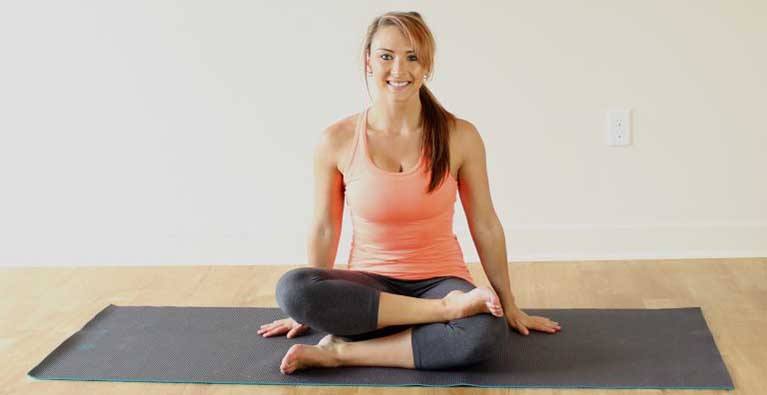 Sit on the floor with crossed legs so that the left leg is crossed in front. Move to the pose using your arms, grab your left ankle and pull it carefully to place it over the right knee. Stack your shins with the left leg on top. Your right knee might be raised a bit from the floor if your hips are really tight, but as you open your hips more, the knee will gradually lower. For a deeper stretch, walk your hands slightly forward. Stay here for at least half a minute, and then do the same thing with the other side.
Sit on the floor with crossed legs so that the left leg is crossed in front. Move to the pose using your arms, grab your left ankle and pull it carefully to place it over the right knee. Stack your shins with the left leg on top. Your right knee might be raised a bit from the floor if your hips are really tight, but as you open your hips more, the knee will gradually lower. For a deeper stretch, walk your hands slightly forward. Stay here for at least half a minute, and then do the same thing with the other side.
7. Crescent Lunge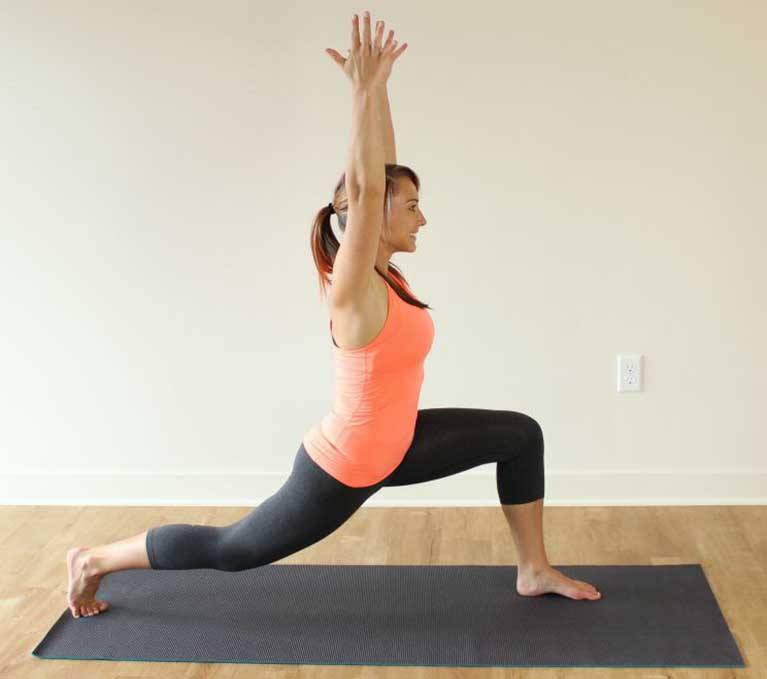
Once again, begin in a runner’s lunge with your knee raised. Slowly remove the hands from the mat by first placing them to the front thigh. Let your hips sink lower while you square the hips to the front of your mat. Raise your arms over your head with engaged abdominals. Lengthen your back leg, and continue lowering and squaring off the hips to increase the stretch. Stay here for at least half a minute, and repeat with the other side.
To improve and maintain healthy and flexible hips, add one or more of these hip-openers to your daily workout routine. For best results, add all of them to improve your mobility, and strengthen your legs and hips.
8. Low Lunge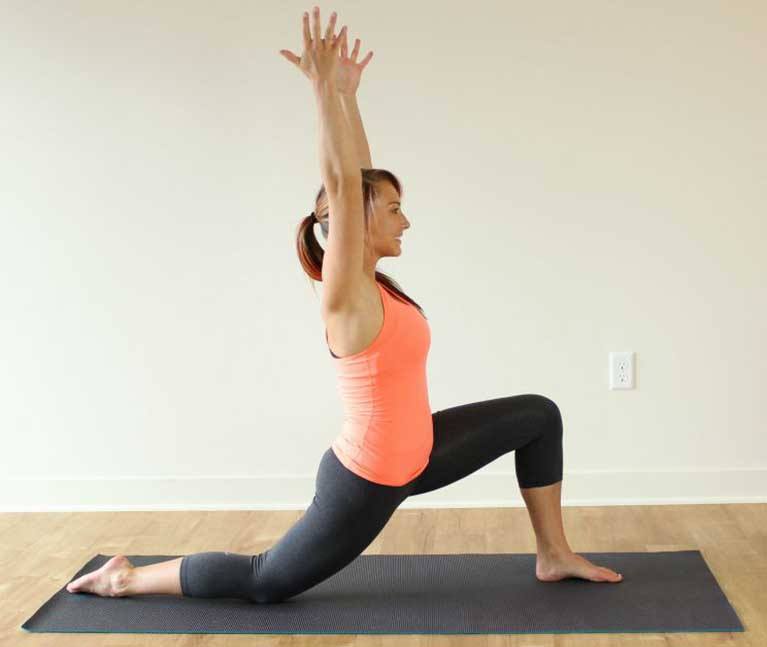
Begin the pose in a runner’s lunge with the right foot placed in front of you, and the hands placed on the mat on each side of your right foot. Lower the back knee, shin to the mat, and gently raise your torso and arms so that your hands rest on the front thigh. Don’t let your back arch, and keep the abdominals engaged. For a deeper stretch, raise your arms overhead and slightly lean forward without arching your back. Stay here for half a minute, and do the same thing on the opposite side.
[thrive_link color=’blue’ link=’https://www.healthandlovepage.com/4-simple-exercises-for-back-pain/’ target=’_blank’ size=’medium’ align=’aligncenter’]4 Simple Exercises You Can Do to Deal with Back Pain[/thrive_link]
Via Outside | Paleohacks

